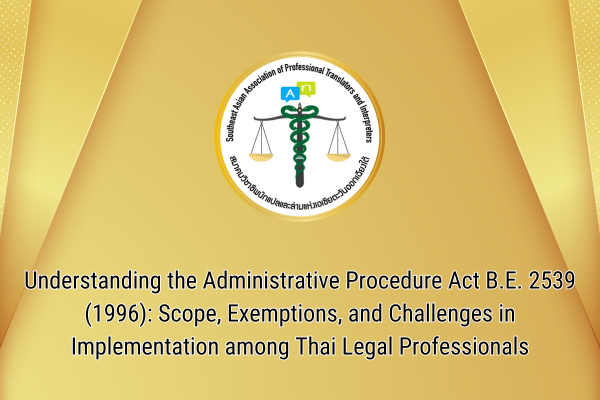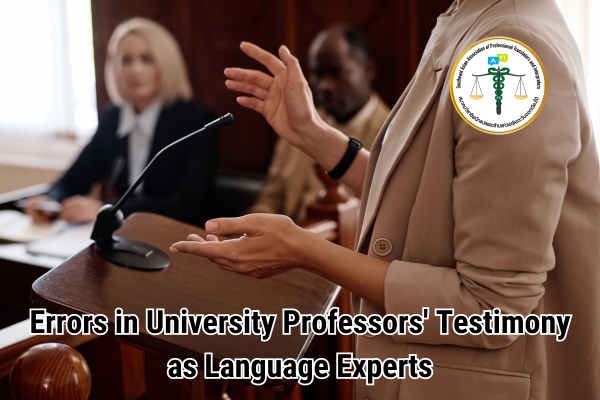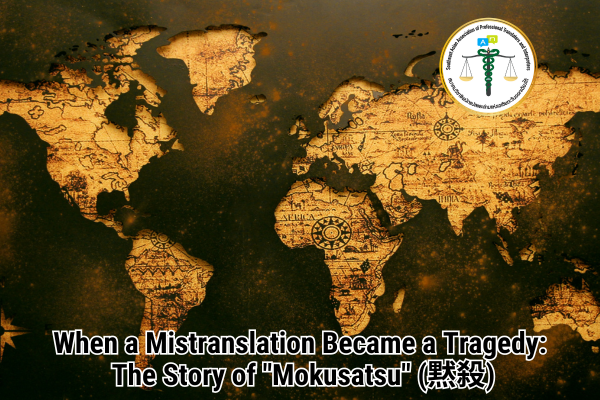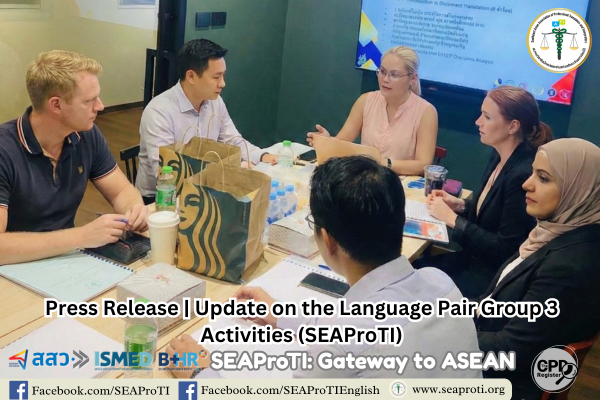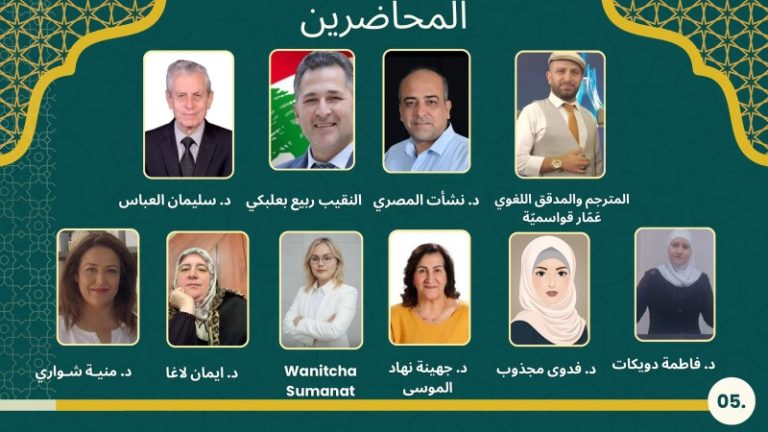Understanding the Administrative Procedure Act B.E. 2539 (1996):
Scope, Exemptions, and Challenges in Implementation among Thai Legal Professionals
Abstract
The Administrative Procedure Act B.E. 2539 (1996) was enacted to establish clear, just, and transparent procedures for public administrative actions in Thailand. While the Act mandates standardized conduct among all public officials, its practical application, particularly concerning document translation and certification, reveals inconsistencies. This article outlines the Act’s objectives, scope of applicability, and exemptions, and examines why some Thai lawyers circumvent compliance, especially in translation certification. The piece concludes with recommendations to enhance the integrity and fairness of administrative processes.
1. Background and Legislative Intent The Administrative Procedure Act B.E. 2539 was promulgated during the reign of His Majesty King Bhumibol Adulyadej the Great on 27 September 1996. The Act was introduced to rectify administrative practices that lacked fairness, clarity, and accountability. It serves as a foundational legal framework to ensure just treatment of citizens, promote good governance, and curb corruption within the Thai public sector.
2. Scope of Applicability The Act applies to all public officials exercising administrative powers, regardless of whether they are in government agencies, state enterprises, or external individuals delegated such authority. Those bound by the Act include:
-
Civil servants and all categories of state officials
-
Natural persons or legal entities involved in administrative proceedings
-
Affected or interested parties subject to administrative orders
-
Disputing parties in administrative procedures
3. Entities and Actions Exempted from the Act Section 4 of the Act clearly delineates entities and activities not subject to its provisions, including:
-
Parliament and the Council of Ministers
-
Constitutionally empowered bodies such as the Election Commission and the NACC
-
Direct policy decisions made by the Prime Minister or Ministers
-
Judicial proceedings and enforcement by the courts
-
Advisory and complaint adjudications by the Council of State
-
Foreign affairs and military operations
-
Criminal justice proceedings
-
Religious institutions
Further exemptions may be granted through Royal Decree, following recommendations from the Committee on Administrative Procedure.
4. Gaps in Implementation: Case of Translation Certification Although the Act is binding across Thai administrative sectors, certain implementation gaps persist. A notable example is Section 26, which requires that all foreign-language documents submitted to public agencies must be accompanied by Thai translations certified for accuracy.
In practice, some lawyers undertake both the translation and certification themselves, despite lacking formal linguistic qualifications. This undermines the impartiality and linguistic integrity expected by the law. Official guidelines increasingly recognize the importance of qualified translators, such as those accredited by the Southeast Asian Association of Professional Translators and Interpreters (SEAProTI).
5. Economic Incentives and Professional Boundaries One reason for such non-compliance stems from economic motivations. Lawyers who self-certify translations can retain associated fees, bypassing professional linguists. While this may appear cost-effective, it risks marginalizing certified language professionals and compromising document reliability.
6. Recommendations and Conclusion For the Act to achieve its intended purpose:
-
Public officials must uphold impartial standards in document handling and certification
-
Certified linguists should be prioritized for translation tasks, especially in legal settings
-
Clear enforcement of Section 26 and related provisions should be ensured
-
Legal practitioners must be reminded of their ethical obligation to support, not circumvent, justice
The Administrative Procedure Act B.E. 2539 was envisioned as a safeguard for fairness in state administration. Upholding its standards not only enhances citizen trust but also fortifies the professionalism of Thailand’s legal and administrative institutions.
Note:
*Administrative Procedure Act, B.E. 2539 (1996) (Original version from the Royal Gazette)
**Administrative Procedure Act, B.E. 2539 (1996) – Amended in 2540(1997) (Original version from the Royal Gazette)
***The translated versions of the two notifications are available in the file attached below this article. Please download it for reference.
SEAProTI’s certified translators, translation certification providers, and certified interpreters:
The Southeast Asian Association of Professional Translators and Interpreters (SEAProTI) has officially announced the criteria and qualifications for individuals to register as “Certified Translators,” “Translation Certification Providers,” and “Certified Interpreters” under the association’s regulations. These guidelines are detailed in Sections 9 and 10 of the Royal Thai Government Gazette, issued by the Secretariat of the Cabinet under the Office of the Prime Minister of the Kingdom of Thailand, dated July 25, 2024, Volume 141, Part 66 Ng, Page 100.
To read the full publication, visit: the Royal Thai Government Gazette
ทำความเข้าใจพระราชบัญญัติวิธีปฏิบัติราชการทางปกครอง พ.ศ. 2539:
ขอบเขต ข้อยกเว้น และความท้าทายในการบังคับใช้ของผู้ประกอบวิชาชีพกฎหมายไทย
บทคัดย่อ
พระราชบัญญัติวิธีปฏิบัติราชการทางปกครอง พ.ศ. 2539 ถูกตราขึ้นเพื่อกำหนดขั้นตอนในการดำเนินการทางปกครองของเจ้าหน้าที่รัฐให้มีความชัดเจน เป็นธรรม และโปร่งใส แม้ว่ากฎหมายฉบับนี้จะมีผลบังคับใช้กับเจ้าหน้าที่รัฐทุกคนที่ใช้อำนาจทางปกครอง แต่การบังคับใช้จริง โดยเฉพาะในประเด็นการแปลเอกสารและการรับรองคำแปล ยังคงมีความคลาดเคลื่อน บทความนี้นำเสนอวัตถุประสงค์ ขอบเขตการบังคับใช้ ข้อยกเว้น และเหตุผลที่ทนายความบางรายหลีกเลี่ยงการปฏิบัติตามกฎหมายดังกล่าว โดยเฉพาะในด้านการรับรองคำแปล พร้อมข้อเสนอแนะเพื่อยกระดับความเป็นธรรมและความโปร่งใสในกระบวนการทางปกครอง
1. ความเป็นมาและเจตนารมณ์ของกฎหมาย พระราชบัญญัตินี้ได้รับการประกาศใช้เมื่อวันที่ 27 กันยายน พ.ศ. 2539 ในรัชสมัยของพระบาทสมเด็จพระปรมินทรมหาภูมิพลอดุลยเดชมหาราช มีจุดประสงค์เพื่อแก้ไขปัญหาการดำเนินงานทางปกครองของรัฐที่ขาดความเป็นธรรม ชัดเจน และตรวจสอบได้ โดยกฎหมายฉบับนี้เป็นเครื่องมือสำคัญในการรับรองสิทธิของประชาชน ส่งเสริมหลักธรรมาภิบาล และป้องกันการทุจริตในวงราชการไทย
2. ขอบเขตการบังคับใช้ กฎหมายฉบับนี้ใช้บังคับกับเจ้าหน้าที่ของรัฐทุกคนที่ใช้อำนาจทางปกครอง ไม่ว่าจะอยู่ในส่วนราชการ รัฐวิสาหกิจ หรือแม้แต่บุคคลภายนอกที่ได้รับมอบอำนาจจากหน่วยงานของรัฐ โดยผู้ที่อยู่ภายใต้กฎหมายนี้ ได้แก่:
-
ข้าราชการและเจ้าหน้าที่รัฐทุกประเภท
-
บุคคลธรรมดาหรือนิติบุคคลที่เข้าร่วมในกระบวนการปกครอง
-
ผู้มีส่วนได้เสียหรือได้รับผลกระทบจากคำสั่งทางปกครอง
-
คู่กรณีในการพิจารณาทางปกครอง
3. หน่วยงานและการดำเนินการที่ได้รับยกเว้น มาตรา 4 ของพระราชบัญญัติฯ กำหนดหน่วยงานและกิจการที่ไม่อยู่ภายใต้บังคับของกฎหมาย ได้แก่:
-
รัฐสภาและคณะรัฐมนตรี
-
องค์กรตามรัฐธรรมนูญ เช่น คณะกรรมการการเลือกตั้ง และคณะกรรมการป้องกันและปราบปรามการทุจริตแห่งชาติ (ป.ป.ช.)
-
การตัดสินใจเชิงนโยบายโดยตรงของนายกรัฐมนตรีหรือรัฐมนตรี
-
กระบวนการพิจารณาและการบังคับคดีของศาล
-
การพิจารณาเรื่องร้องทุกข์ของคณะกรรมการกฤษฎีกา
-
งานด้านการต่างประเทศและการทหาร
-
กระบวนการยุติธรรมทางอาญา
-
องค์กรทางศาสนา
นอกจากนี้ ยังสามารถมีการยกเว้นเพิ่มเติมผ่านพระราชกฤษฎีกาโดยคำแนะนำของคณะกรรมการวิธีปฏิบัติราชการทางปกครอง
4. ช่องโหว่ในการบังคับใช้: กรณีการรับรองคำแปล แม้กฎหมายจะมีผลบังคับใช้ครอบคลุมในภาคราชการไทยทั้งหมด แต่ในการปฏิบัติจริง โดยเฉพาะตามมาตรา 26 ที่กำหนดให้เอกสารภาษาต่างประเทศต้องมีคำแปลภาษาไทยที่รับรองความถูกต้อง กลับพบปัญหาในทางปฏิบัติ
ในหลายกรณี ทนายความเป็นผู้แปลและรับรองคำแปลด้วยตนเอง แม้จะไม่มีคุณวุฒิด้านภาษาต่างประเทศโดยตรง ซึ่งส่งผลต่อความเป็นกลางและความถูกต้องของคำแปล ทั้งที่ประกาศและแนวปฏิบัติราชการได้เริ่มกำหนดให้ผู้รับรองคำแปลต้องเป็นผู้มีความรู้ด้านภาษาที่เหมาะสม เช่น ผู้ที่ได้รับการรับรองจากสมาคมวิชาชีพนักแปลและล่ามแห่งเอเชียตะวันออกเฉียงใต้ (SEAProTI)
5. แรงจูงใจทางเศรษฐกิจและปัญหาเชิงวิชาชีพ สาเหตุสำคัญที่ทนายบางรายเลือกไม่ปฏิบัติตามกฎหมายนี้อย่างครบถ้วนคือแรงจูงใจทางเศรษฐกิจ โดยการแปลและรับรองคำแปลเองจะทำให้ทนายความสามารถเรียกเก็บค่าธรรมเนียมโดยไม่ต้องจ้างผู้เชี่ยวชาญทางภาษา แม้จะเป็นการประหยัดต้นทุน แต่ก็เป็นการลดบทบาทของผู้เชี่ยวชาญด้านภาษา และส่งผลกระทบต่อความน่าเชื่อถือของเอกสารทางราชการ
6. ข้อเสนอแนะและบทสรุป เพื่อให้พระราชบัญญัติฉบับนี้บรรลุเป้าหมายที่ตั้งไว้ ควร:
-
เจ้าหน้าที่รัฐต้องรักษามาตรฐานความเป็นกลางในการจัดการเอกสารและการรับรองคำแปล
-
ควรให้ความสำคัญกับการใช้ผู้แปลที่ได้รับการรับรองโดยเฉพาะในบริบททางกฎหมาย
-
บังคับใช้มาตรา 26 อย่างเคร่งครัดและทั่วถึง
-
เตือนให้ผู้ประกอบวิชาชีพกฎหมายตระหนักถึงหน้าที่ทางจริยธรรมในการส่งเสริมความยุติธรรม
พระราชบัญญัตินี้มีเจตนารมณ์เพื่อรับรองความเป็นธรรมในกระบวนการทางราชการ หากสามารถยึดถือและปฏิบัติได้อย่างจริงจัง จะช่วยเพิ่มความเชื่อมั่นของประชาชน และเสริมสร้างความเป็นมืออาชีพในแวดวงกฎหมายและการบริหารราชการแผ่นดินไทย
หมายเหตุ:
* พระราชบัญญัติวิธีปฏิบัติราชการทางปกครอง พ.ศ. ๒๕๓๙ (ต้นฉบับภาษาไทยจากราชกิจจานุเบกษา)
** กฎกระทรวง (พ.ศ. ๒๕๔๐) ออกตามความในพระราชบัญญัติวิธีปฏิบัติราชการทางปกครอง พ.ศ. ๒๕๓๙ (ต้นฉบับภาษาไทยจากราชกิจจานุเบกษา)
***ฉบับแปลของประกาศทั้งสองฉบับสามารถดาวน์โหลดได้จากไฟล์ที่แนบไว้ใต้บทความนี้ กรุณาดาวน์โหลดเพื่อใช้เป็นข้อมูลอ้างอิง
เกี่ยวกับนักแปลรับรอง ผู้รับรองการแปล และล่ามรับรองของสมาคมวิชาชีพนักแปลและล่ามแห่งเอเชียตะวันออกเฉียงใต้
สมาคมวิชาชีพนักแปลและล่ามแห่งเอเชียตะวันออกเฉียงใต้ (SEAProTI) ได้ประกาศหลักเกณฑ์และคุณสมบัติผู้ที่ขึ้นทะเบียนเป็น “นักแปลรับรอง (Certified Translators) และผู้รับรองการแปล (Translation Certification Providers) และล่ามรับรอง (Certified Interpreters)” ของสมาคม หมวดที่ 9 และหมวดที่ 10 ในราชกิจจานุเบกษา ของสำนักเลขาธิการคณะรัฐมนตรี ในสำนักนายกรัฐมนตรี แห่งราชอาณาจักรไทย ลงวันที่ 25 ก.ค. 2567 เล่มที่ 141 ตอนที่ 66 ง หน้า 100 อ่านฉบับเต็มได้ที่: นักแปลรับรอง ผู้รับรองการแปล และล่ามรับรอง


